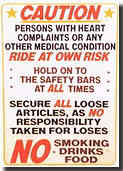Thursday, September 02, 2010
Hallelujah Junction
Found these notes in a desktop folder.
John Adams, Hallelujah Junction: Composing an American Life (2008)
Before writing about John Adams the composer, I mulled over the extent of his fame. A TV series about John Adams the President made that founding father very famous. Perhaps most Americans now know he was president, a greater number than before know he was the second president. John Adams is also America's most famous composer of art music. But does this fame extend much beyond public radio listeners & New York Times arts section readers, & "high brow" concert goers? He's famous enough to write well-received hardcover autobiography, famous enough for Elizabeth Library to have bought two copies & assigned one to my branch. I was the first to check it out of the 14 day shelves, several months after it had arrived. One copy would have sufficed.
I ought to like his music more than I do. He's not dogmatic, tackles serious themes yet is also playful. We're in agreement on how art progresses, not surprising since we're about the same age & arrived at that view about the same time from different directions.
Although Adams is a year older than I am, the tastes & influences in his earlier works were five or more years behind where I was at in my listening. & he was inside the music world, out in San Francisco. It wasn't like I was trying hard to catch any waves; I simply read The Village Voice including the live performance listings, bought unusual records, & subscribed to an experimental music magazine. So while I should have admired Adams' gifts & his generalist approach, I viewed him mainly as an appropriator & popularizer with huge ambitions (realized beyond his wildest dreams). He wasn't subversive enough for a young artist. Later, it didn't matter so much.
Adams doesn't spend many words on his American competition because he didn't really have much in his own generation, Philip Glass, Steve Reich, & Terry Riley being a decade older & having established the minimalist platform for Adams' basic "sound" if not his techniques. I was apparently aware of minimalism, & saw how influential it was becoming, before Adams did.
Adams reserves his strongest criticism for academic, elitist serialist composers, content to compose for each other. Adams doesn't believe that artistic evolution is synonymous with increasing complexity. Certainly the minimalists got there before him. Others, like me, came to the same conclusion from the other side of the tracks. The idea of the continuous development of The Beatles had warped rock music in similar way to how serialists had screwed up art music. It was commonly asserted Sgt. Pepper was "better" than the band's earlier 3 minute masterpieces because it was more complex & "conceptual". This "refinement" gave us Emerson. Lake & Palmer, & Yes, bloated double albums, & much tedious "classic rock." There was a strong cult of virtuosity, which had previously been a sideshow in rock & roll. Nonrockers Carole King & James Taylor were considered the antidotes. That was the dreary situation in the early Seventies, & it took punk to shake things up & get back to the "norm." At the time, I didn't see much hope for rock, which was the topic of the first writing I had published about music, in the Ramapo College newspaper. But it's what pushed me to explore other kinds of music.
The best part of the book is the first half, growing up in an eccentric New England family, becoming a clarinet prodigy, attending musically conservative Harvard*, the move west to the Bay area. The oddity is that Adams kept organizing Sixties type "alternative" concerts & happening events well into the Seventies, after art music had moved on. It took the Bay area awhile to recover from its brief fame as the cultural epicenter of American hippiedom & political radicalism. He was tardy in his appreciation for composer John Cage. Cage's value, at the least, was that he pushed composers to ask themselves what lay beyond Cage's ideas.
Death of Klinghoffer: Had this Adams opera on my shelf for years, admire the libretto by Alice Goodman. I've always found it unlistenable, like an operatic parody but too serious to laugh at it, unlike Nixon in China. which made Adams famous.
*How conservative? Adams submiitted a composition for audio tape as his masters project, & it was considered unusual. Around the same time the progressive music faculty at my state college in Jersey allowed a tape composition as an undergrad admissions audition.
John Adams on pop culture.
"If a nation expects to be ignorant and free, in a state of civilization, it expects what never was and never will be." Thomas Jefferson
John Adams, Hallelujah Junction: Composing an American Life (2008)
Before writing about John Adams the composer, I mulled over the extent of his fame. A TV series about John Adams the President made that founding father very famous. Perhaps most Americans now know he was president, a greater number than before know he was the second president. John Adams is also America's most famous composer of art music. But does this fame extend much beyond public radio listeners & New York Times arts section readers, & "high brow" concert goers? He's famous enough to write well-received hardcover autobiography, famous enough for Elizabeth Library to have bought two copies & assigned one to my branch. I was the first to check it out of the 14 day shelves, several months after it had arrived. One copy would have sufficed.
I ought to like his music more than I do. He's not dogmatic, tackles serious themes yet is also playful. We're in agreement on how art progresses, not surprising since we're about the same age & arrived at that view about the same time from different directions.
Although Adams is a year older than I am, the tastes & influences in his earlier works were five or more years behind where I was at in my listening. & he was inside the music world, out in San Francisco. It wasn't like I was trying hard to catch any waves; I simply read The Village Voice including the live performance listings, bought unusual records, & subscribed to an experimental music magazine. So while I should have admired Adams' gifts & his generalist approach, I viewed him mainly as an appropriator & popularizer with huge ambitions (realized beyond his wildest dreams). He wasn't subversive enough for a young artist. Later, it didn't matter so much.
Adams doesn't spend many words on his American competition because he didn't really have much in his own generation, Philip Glass, Steve Reich, & Terry Riley being a decade older & having established the minimalist platform for Adams' basic "sound" if not his techniques. I was apparently aware of minimalism, & saw how influential it was becoming, before Adams did.
Adams reserves his strongest criticism for academic, elitist serialist composers, content to compose for each other. Adams doesn't believe that artistic evolution is synonymous with increasing complexity. Certainly the minimalists got there before him. Others, like me, came to the same conclusion from the other side of the tracks. The idea of the continuous development of The Beatles had warped rock music in similar way to how serialists had screwed up art music. It was commonly asserted Sgt. Pepper was "better" than the band's earlier 3 minute masterpieces because it was more complex & "conceptual". This "refinement" gave us Emerson. Lake & Palmer, & Yes, bloated double albums, & much tedious "classic rock." There was a strong cult of virtuosity, which had previously been a sideshow in rock & roll. Nonrockers Carole King & James Taylor were considered the antidotes. That was the dreary situation in the early Seventies, & it took punk to shake things up & get back to the "norm." At the time, I didn't see much hope for rock, which was the topic of the first writing I had published about music, in the Ramapo College newspaper. But it's what pushed me to explore other kinds of music.
The best part of the book is the first half, growing up in an eccentric New England family, becoming a clarinet prodigy, attending musically conservative Harvard*, the move west to the Bay area. The oddity is that Adams kept organizing Sixties type "alternative" concerts & happening events well into the Seventies, after art music had moved on. It took the Bay area awhile to recover from its brief fame as the cultural epicenter of American hippiedom & political radicalism. He was tardy in his appreciation for composer John Cage. Cage's value, at the least, was that he pushed composers to ask themselves what lay beyond Cage's ideas.
Death of Klinghoffer: Had this Adams opera on my shelf for years, admire the libretto by Alice Goodman. I've always found it unlistenable, like an operatic parody but too serious to laugh at it, unlike Nixon in China. which made Adams famous.
*How conservative? Adams submiitted a composition for audio tape as his masters project, & it was considered unusual. Around the same time the progressive music faculty at my state college in Jersey allowed a tape composition as an undergrad admissions audition.
John Adams on pop culture.
Labels: music, Rix reviews














